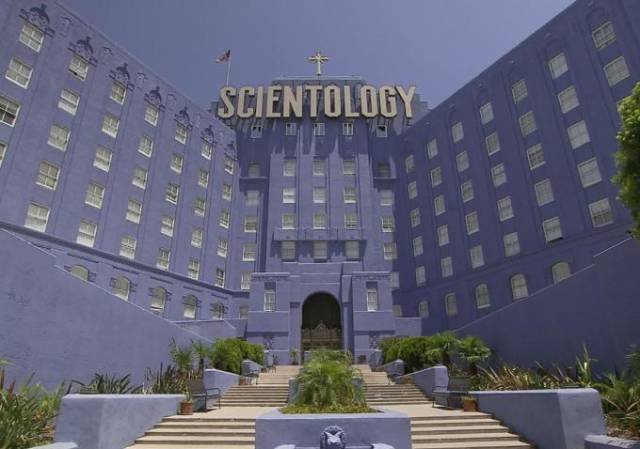
 Just based on the title of Alex Gibney's Going Clear: Scientology and the Prison of Belief, it seems fairly obvious which side of the story he’s setting out to tell, and while an impressive amount of investigation went into this telling, the film veers into propaganda to tell it. Several previous members of the Church of Scientology tell their haunting stories, and the narrative becomes extremely critical and denunciatory (about twenty minutes in), but Gibney can stand behind these claims based on his thorough research. The title of the film, for instance, refers to church members who reach a degree where they are no longer influenced by unwanted emotions, therefore becoming "clears".
Just based on the title of Alex Gibney's Going Clear: Scientology and the Prison of Belief, it seems fairly obvious which side of the story he’s setting out to tell, and while an impressive amount of investigation went into this telling, the film veers into propaganda to tell it. Several previous members of the Church of Scientology tell their haunting stories, and the narrative becomes extremely critical and denunciatory (about twenty minutes in), but Gibney can stand behind these claims based on his thorough research. The title of the film, for instance, refers to church members who reach a degree where they are no longer influenced by unwanted emotions, therefore becoming "clears".
Scientology creator L. Ron Hubbard was one of the most prolific writers known to date, publishing 1084 books, a Guinness record. Hubbard began writing seriously in college, went on to write for a variety of pulp fiction magazines during the 30s, eventually finding success as a science fiction writer. In the 40s Hubbard became a commander of two anti-submarine vessels, but blundered went he emptied the ships’ armaments attacking a floating log, and also by bombarding a non-threatening Mexican island. Hubbard was discharged due to incompetence; however, Scientologist writings twisted these facts. Within Scientology, Hubbard is known as a valiant commodore who was wounded in battle and captured, later rehabilitating himself through pure diligence alone, and then receiving numerous medals of valor. None of which is true.
Post-military, Hubbard published Dianetics: The Modern Science of Mental Health in 1950. While the scientific community shunned it, the book became extremely successful and was the nascent of what would eventually mutate into Scientology. What is Scientology exactly? Gibney explains this and even if the film’s delivery is heavy-handedly anti-Scientology, a viewer who knows nothing about the organization will still learn a great deal about it from watching this film.
The debate over whether Scientology is a real religion or just come kind of cult, is a debate familiar to anyone in modern culture. While the deeper philosophies of Scientology venture into the cultish and absurd, when courting new members, the organization functions much like an altruistic, self-help group, encouraging positive thoughts and improving one’s person. At first the program might seem quite intriguing. But as members get further into the organization, the constructive axioms dissolve into dogma that slowly indoctrinate a person into sedation. Former church member Paul Haggis (Crash) confirms his inability to see the truth, as he recounts to Gibney his experiences and how he had sunk very low before realizing what he had become.
Perhaps the most inflammatory element is financial. To achieve these higher levels within the church requires a lot of money. Even the decision of whether Scientology is a religion or not is based in finance. The decision is not delegated to theology; rather, it is the IRS who says yes or no. On the line is over a billion dollars; a religion is tax exempt, so Scientology never paid taxes. The huge sums that this supposed “church” has taken in have mostly been invested back into pricey real estate, so the IRS saying “not a religion” would empty the coffers to pay backed taxes. This would turn-off Scientology’s lights. While this might sound like a good thing, Gibney’s interviews and details lead one to believe that this is not going to happen anytime soon.
Going Clear: Scientology and the Prison of Belief is an HBO Documentary release. The film will be open in theaters on March 13, and will air on HBO on March 29.